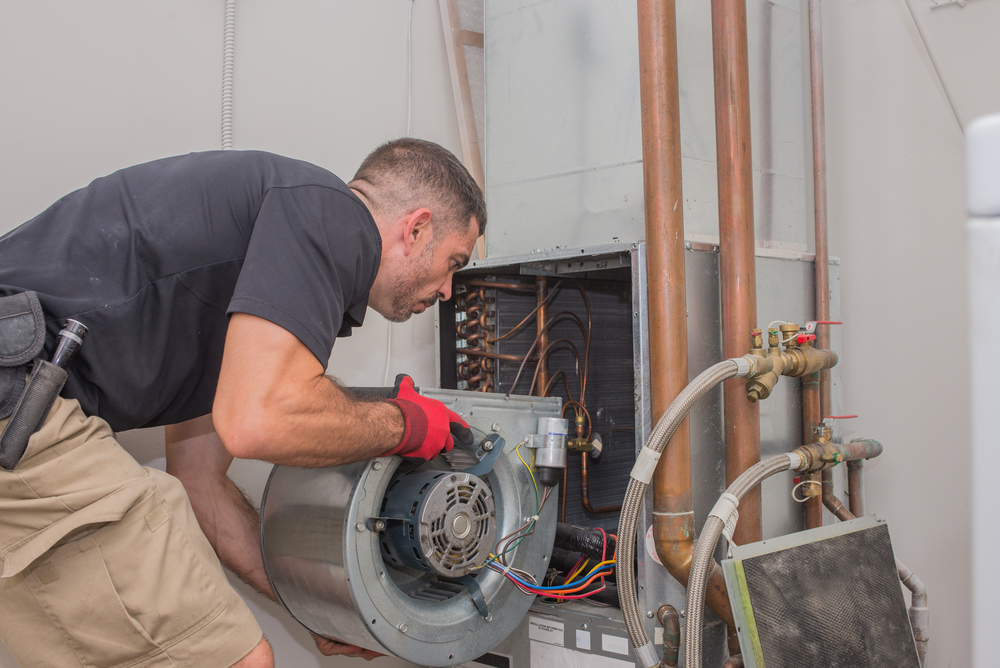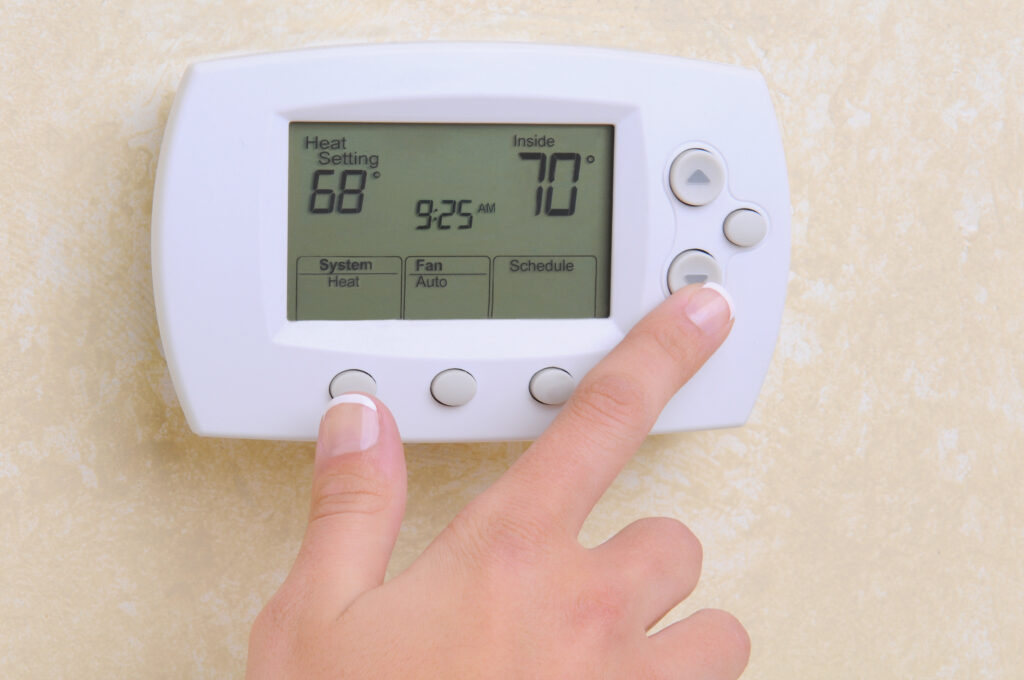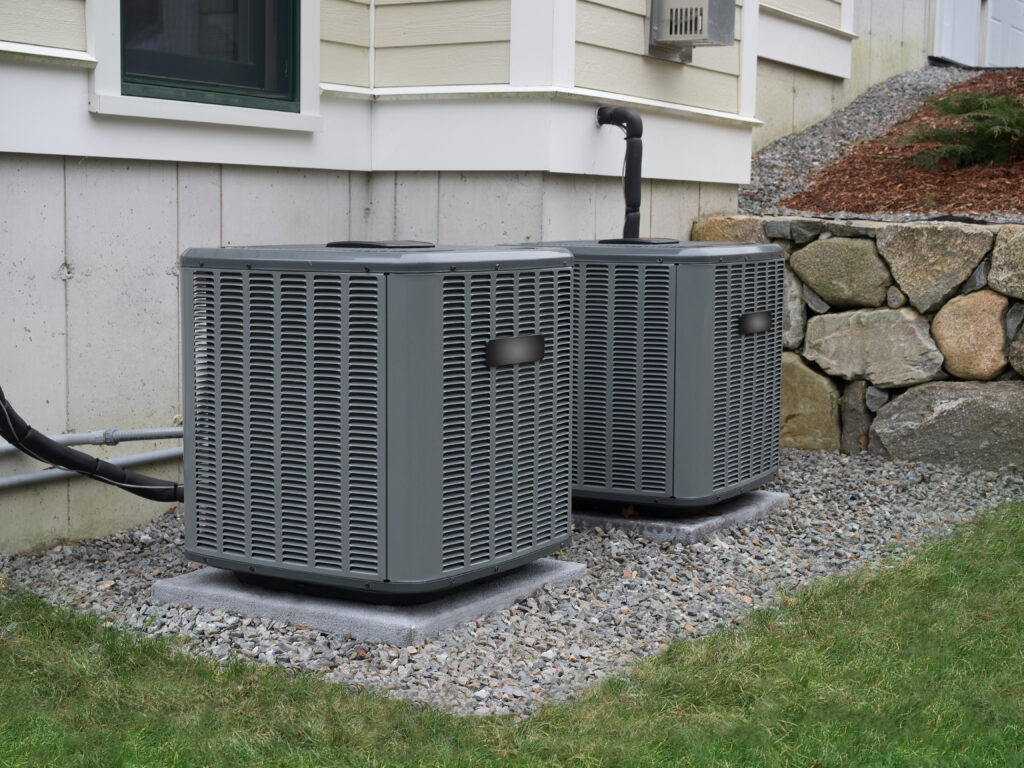Introduction
The blower motor is likely not the first thing you think of when you think of your HVAC system. You might think of your air conditioner or furnace instead. We even discuss how a blower motor is considered a secondary part of your HVAC system in the blog post “What Makes Up an HVAC System?.” That doesn’t make it any less important, however. Without a functioning blower motor, your HVAC system cannot run. In this month’s blog post, we will discuss what a blower motor is and what happens if it goes bad.

What Is It?
An HVAC blower motor is a component of your heating and cooling system that controls its airflow. It powers the system’s fan and helps push out cold or hot air depending on your thermostat’s settings. Your thermostat likely has the option to turn on and off your system’s fan. If it does, the option will be labeled either as a “fan” or with a fan icon on your thermostat. When your system’s fan is powered, your HVAC blower motor will be too. Your HVAC system cannot work without the blower motor.

The two most common types of HVAC blower motors are permanent split capacitor (PSC) motors and electronically commutated (EC) motors. PSC motors are significantly less efficient than EC motors. They are only able to run at maximum speed. This causes them to wear and tear quicker than EC motors and consume more energy. EC motors, on the other hand, can run at different speeds depending on what is needed. For example, a PSC motor will run at maximum speed until your thermostat registers the temperature you have it set at while an EC motor will switch speeds, depending on your HVAC’s needs. Since an EC motor can switch speeds, it will be quieter than a PSC motor the majority of the time. As of 2019, manufacturers no longer produce HVAC systems with PSC motors because of new energy rules.
What Happens if It Stops Working?
Several things may happen if your HVAC blower motor starts experiencing problems or quitting working altogether. You might notice minor things such as excessive moisture around your HVAC unit or more dust around your home. You might even hear a few weird noises from your HVAC unit and dismiss them. It is more difficult to dismiss the major signs that your HVAC blower motor is breaking, however. As your blower motor is no longer able to control airflow as efficiently, it will force your heating and cooling system to use more energy. Your energy bills will go up, and you may find yourself paying significantly more. Eventually, your HVAC system will stop working altogether.
According to Forbes.com, the average cost to replace an entire blower motor is $550, including labor. Sometimes, you may only need to replace parts of your blower motor, such as the capacitor or pulley. Your capacitor can cost anywhere between $10 to $50, and your pulley can cost anywhere between $30 to $250. The most expensive part of your blower motor is the motor control module. Your motor control module controls the speed of your blower motor. It is the main component in your blower motor, and the price of replacing it can vary wildly depending on what blower motor you have. Thankfully, if your HVAC system is still covered under a warranty, you may have to pay significantly less to replace your blower motor or parts of your blower motor, or you may not have to pay at all.
The sooner you can catch the signs that your blower motor is starting to fail, the less money you are likely to have to spend. The best thing you can do when you notice problems with your HVAC blower motor is to call a reputable HVAC company and have them take a look at it. It will save you money in the long run.

Conclusion
In this blog post, we discussed what an HVAC blower motor is and what happens when it goes bad. Without a blower motor, your HVAC system is unable to control its airflow, rendering it useless. It can be an expensive part to replace, but depending on if you only have to replace a part or two or have your entire HVAC system under a warranty, you may not have to pay the full price. Do you have any questions about this blog post? Leave a comment below, and we will do our best to answer. Live in St. Louis County or the surrounding areas and need your HVAC blower motor looked at? Contact us! You can call us at 636-475-984 or use the contact form below. We look forward to hearing from you!